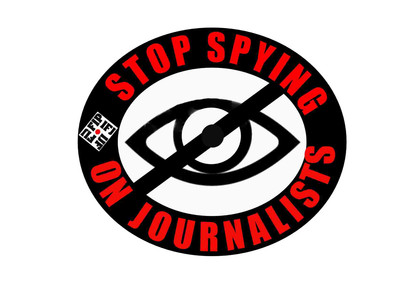August 9, 2022 marks the second anniversary of the most recent presidential election in the Republic of Belarus. Two years ago, instead of recognizing the democratic choice, the authorities overturned it through the use of violence, as well as the harsh suppression of democratic forces and freedom of expression. The regime has now jeopardized the independence of the country itself by supporting the Kremlin’s war of aggression against Ukraine.
Over the past two years, Belarusian media have faced unprecedented pressure from the State, which has the sole purpose of destroying independent journalism in Belarus. Imposed measures included the tightening of the legal regulation of media, the labeling of many independent media outlets as “extremist formations” and their publications as “extremist materials”, restrictions on free access to independent media websites, and the closures of independent media outlets, as well as creating obstacles to the distribution of printed media; these are only small examples of the large-scale repressive policy deployed by the authorities.
Moreover, media workers faced mass arbitrary detentions (480 cases in 2020, 113 cases in 2021), often accompanied by physical and psychological violence, as well as the damage or seizure of professional equipment, along with prosecution in the form of administrative arrests and fines. Such actions have also become part of the toolset in the fight against independent journalists. One of the most egregious forms of persecution was the initiation of politically motivated criminal cases against individual representatives of mass media. Currently, 30 media workers are behind bars in Belarus.
Freedom of expression is the cornerstone of any democratic society. BAJ, the largest democratic association of media representatives in Belarus has carried on with its activities to protect media freedom and freedom of expression despite the pressure from the authorities. The IFJ, the EFJ and BAJ are convinced that the international community should not turn a blind eye to the repression of the independent media sector and the flagrant violations of human rights against media representatives in Belarus.
The IFJ and EFJ join BAJ in calling on journalists around the world and journalistic and human rights organizations to appeal to the Belarusian authorities to stop repressing the media and citizens for expressing their opinions. The federation urge their affiliates to appeal to their governments to use their political influence on the Belarusian authorities to restore freedom of expression in Belarus, which is not only a fundamental freedom but also a criterion for exercising all other civil and political rights.
The IFJ and EFJ call for the immediate release of the 30 journalists and media workers detained in Belarus, namely:
- Ekaterina Andreyeva
- Daria Chultsova
- Ihar Losik
- Siarhei Gordievich
- Ksenia Lutskina
- Andrei Aleksandrov
- Dzianis Ivashyn
- Andrzej Pachobut
- Marina Zolatova
- Lyudmila Chekina
- Valery Kostyugova
- Alexander Ivulin
- Yahor Martynovich
- Andrei Skurko
- Iryna Levshina
- Dmitrii Navazhilov
- Genadz Mazheyka
- Iryna Slavnikova
- Andrei Kuznechyk
- Siarhei Satsuk
- Oleg Gruzdilovich
- Yury Gantsarevich
- Dmitriy Luksha
- Konstantin Zalatykh
- Ales (Alexander) Lyubyanchuk
- Yuliya Mudrevskaya
- Yuriy Gladchuk
- Vitaly Andras
- Alena Andras
- Anatoly Bukas


